SPECIAL REPORT • BLUE FOOD SYSTEMS
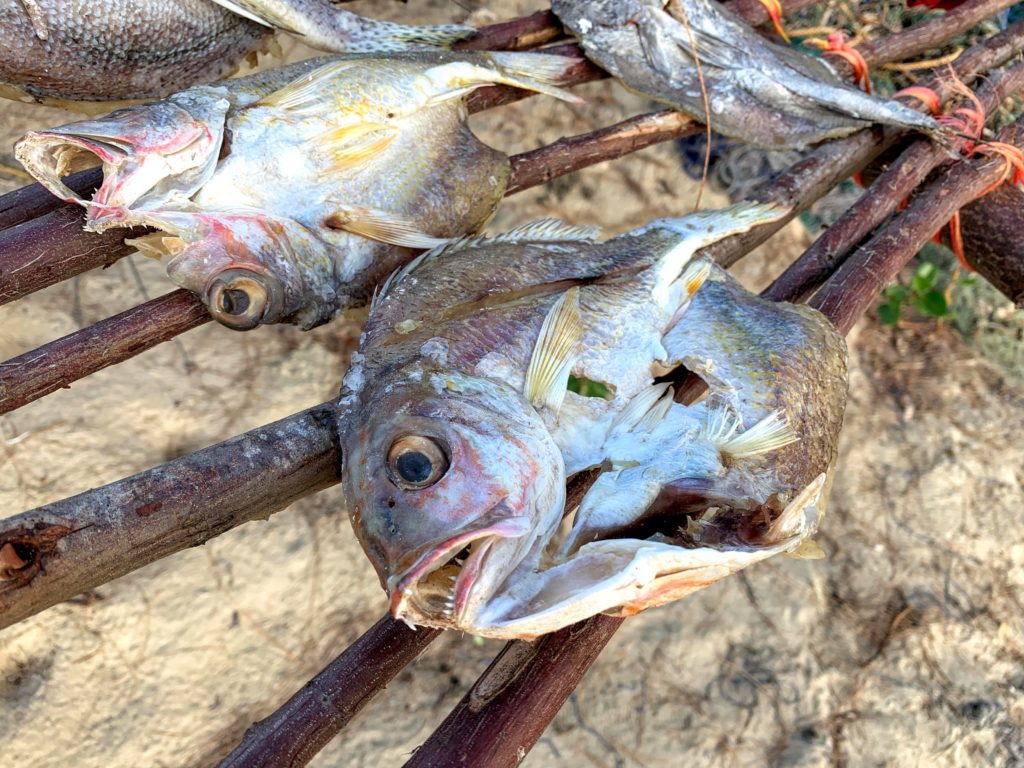
Turning the boat around
Small-scale fisheries are crucial to food security in Africa, but they are threatened by non-government support as well as government support of industrial and illegal fishing by foreign vessels
BY Bryan P. Galligan SJ | Research and Policy Analyst of food and climate justice, Jesuit Justice and Ecology Network Africa, Nairobi, Kenya
ON 1 February 2022, a group of four fishermen attempting to access the Mbashe River in South Africa, a traditional fishing ground they were legally entitled to use, were detained and assaulted by a group of nine nature reserve rangers. The rangers, who were either unaware
of or indifferent to their right to access the river, beat them, tied them up with reeds found along the riverbank, and suffocated them with their own clothes.
When most people think of food security, they do not think of fish
The recent incident on the banks of the Mbashe River is not an isolated one. During COVID-19 lockdowns in South Africa,
for example, the harassment of smallscale fishermen by law enforcement authorities was so intense that many communities were temporarily deprived of access to their fishing grounds. During
similar lockdowns in Kenya, artisanal fishermen who operate at night were prohibited from doing so. Some chose to dodge the police in order to practise their traditional livelihoods and feed their communities. Others hung up their gear, stayed home, and hoped for the best. In
both cases, local food production was curtailed with devastating effect.
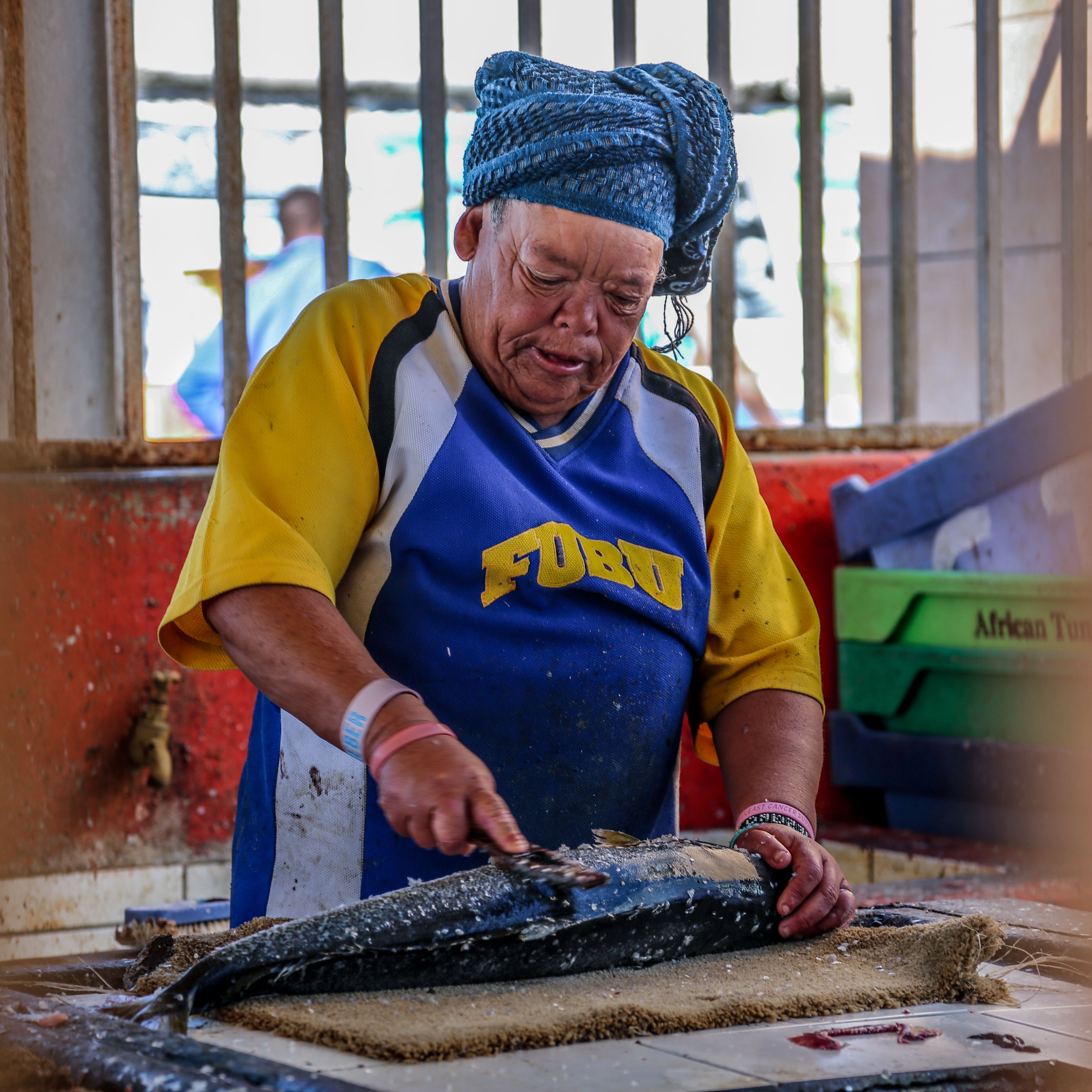
When most people think of food security, they do not think of fish. And
yet, wild-caught fish are a vital source of calories and micronutrients for many of the world’s poor, including many in Sub-Saharan Africa. In much of Africa, including several land-locked countries, over 20% of the animal-based protein in people’s diets comes from fish. In coastal
and riparian regions, that number can be 90% or more. Most of these fish are caught by small-scale, artisanal fishermen, who account for about 90% of fish workers, 60% of the global catch, and an even higher proportion of the catch available to food-insecure communities in developing countries. Although government planners often see the diversity of Africa’s small-scale fisheries as a problem that makes them difficult to manage, that very diversity often confers resilience in the face of environmental and economic shocks such as those caused by COVID-19 and climate change.
Blue economic development
Capture fisheries, and especially small-scale fisheries, are a crucial piece of the food security puzzle. At a time when hunger and malnutrition are on the rise, national and global actors should be doing all they can to strengthen small-scale fisheries in Africa. So why are they taking the opposite course?
Sadly, the political priorities of African and world leaders are not aligned with the food security needs of communities reliant on aquatic resources. First, consider the events at the Mbashe River. This physical brutalization of small-scale fishermen is not a new phenomenon, but it is a growing one. This is particularly true of African nations that are changing the way they govern the ocean in the name of blue economy initiatives. The stated goals of these initiatives usually reflect the priorities of the so-called ‘triple bottom line,’ the idea that corporate entities should be evaluated based on their social and environmental impacts as well as the profits they generate. However, blue economic development in Africa has rarely achieved, or even tried to achieve, these lofty goals. Instead, it has re-packaged old and broken development models in shiny new clothing. This has had disastrous results for small-scale fishermen and the food security of coastal communities.
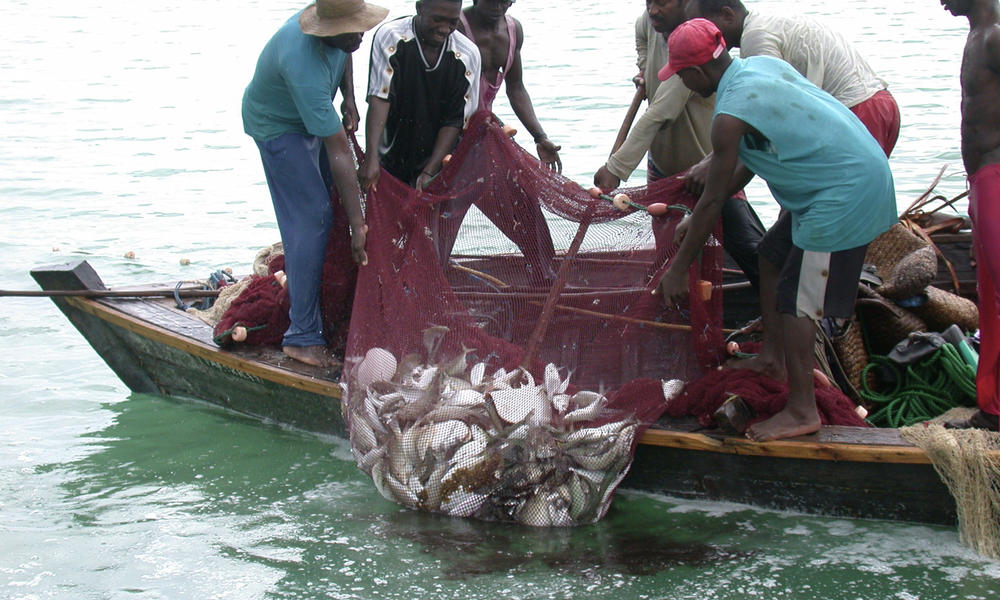
Anyone who has studied the history of African food systems, knows exactly how damaging the colonial project for food security was
Anyone who has studied the history of African food systems, or indeed anyone who has lived this history, knows exactly how damaging the colonial project for food security was. In many places, colonial authorities altered African food systems through the use of military force and structural violence to build an agricultural economy oriented toward the export of cash crops and the benefit of wealthy elites. Economies grew while people went hungry. A similar pattern is reproduced in the blue economy today.
The ocean and its resources are depicted as ‘untapped’ and ‘there for the taking,’ the existing resource users (small-scale fishermen) and the social benefits they provide (food security) are rendered invisible, and hard and soft power are mobilized to ‘secure’ the resources in question. We should not be surprised, then, when nature reserve rangers in South Africa feel empowered to torture fishermen, or the Danish navy goes pirate hunting in the Gulf of Guinea, or the government of Kenya refuses to recognize an international legal ruling that shrinks their territorial sea. These episodes fit into a wider pattern of blue economic development that bears more similarity to colonial exploitation of people and nature than to the rosy pictures painted by its proponents. Under this emerging economic order, small-scale fishermen become collateral damage.
Overfishing
The vigilance and patrolling of the sea and the exclusion of small-scale fishermen is not the only cause of marginalization and hunger in African coastal communities. Law and policy specific to fishery governance are also to blame. Most countries do not govern fisheries with food security in mind. They overwhelmingly tend to view fish as a natural resource rather than as a food resource.
Consider Kenya, for instance, which, until very recently, could have been considered a success story. Over the past two decades, fishery managers, NGOs, and local communities have worked together to make slow progress in improving the sustainability of fisheries and empowering coastal communities. Beach management units (community organizations that participate in fishery governance) were created and eventually codified into law. Marine reserves capable of sustaining high levels of fishing in adjacent waters were established and expanded. Many challenges remained, but a clear positive trajectory had been established. Unfortunately, however, the government now seems set to abandon that progress.
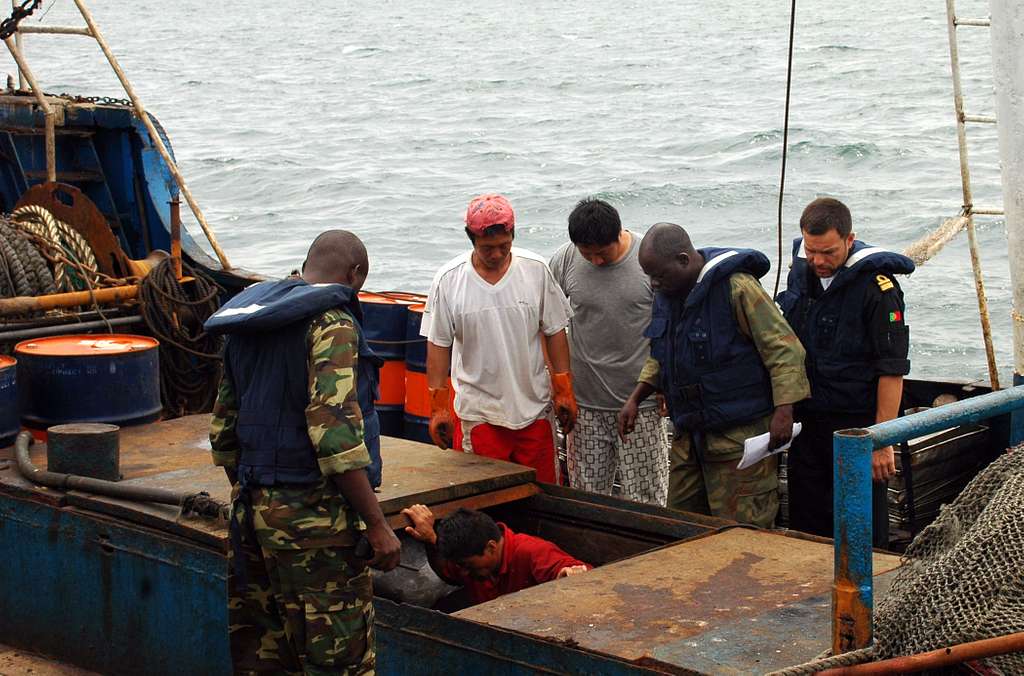
Kenya recently released a draft set of fishery regulations that do not recognize the human and customary rights of small-scale fishermen to access marine resources. The draft regulations are instead designed to support an industrial fishing sector that barely exists and will not be capable of providing the social benefits now provided by small-scale fisheries. It is not clear what the final version of these regulations will look like, but the draft version makes it apparent that the government of Kenya is more interested in developing a sleek, capital-intensive commercial fishing fleet than in protecting coastal food security. Sadly, these priorities are consistent with those of other African nations as well, especially if the African Union’s Agenda 2063 is any indication. In its continent-wide development agenda, the AU specifically targets the fishery sector as a source of macro-economic growth, but does not discuss its contribution to food security. While these goals need not be diametrically opposed, a fishing industry designed to provide maximum food security for local communities would look very different from one designed to optimize economic efficiency.
African states must protect their fish stocks from exploitation by distant water fishing nations
The challenges I have described thus far—the colonial approach to blue economic development and the focus on fisheries as a natural resource rather than as a food resource—are only part of the problem. There are many other reasons why blue food systems in Africa are underperforming. Legal and illegal fishing by large vessels from Europe and Asia are depleting fish stocks, often supported by government subsidies. Fish from African waters are also diverted through trade or as animal feed to wealthier countries instead of providing sorely needed calories and micronutrients to the communities where they were caught. Overfishing in marine and inland water bodies is also a major challenge.
While fish are already a vital source of food in Africa, these mounting challenges make it much more difficult for fishermen to practice their livelihoods and maximize their contribution to food security and nutrition. Hundreds of millions are affected. Fortunately, however, this tragic situation is not a necessary one. Increasing fishery production in a way that is both sustainable and equitable is difficult, but not impossible, and researchers and managers in many places are working together to make this happen. But production is only part of the problem. What Africa’s blue food systems really need is a political transformation.
Community participation
First, African states must protect their fish stocks from exploitation by distant-water fishing nations. In many cases, more powerful countries gain access to Africa’s marine resources through manipulative access agreements in which the fishing nation pays a token fee in exchange for access to the host nation’s marine resources and for maintaining the secrecy of the agreement’s terms. Host nations with a limited ability to patrol their own waters and ensure foreign vessels are following the law are particularly attractive. To turn this around, African countries will need to work together to negotiate access agreements as regional blocs, make the terms of their access agreements public, and re-allocate security resources away from the small-scale fisheries they currently target and toward the foreign vessels that cause much more damage.
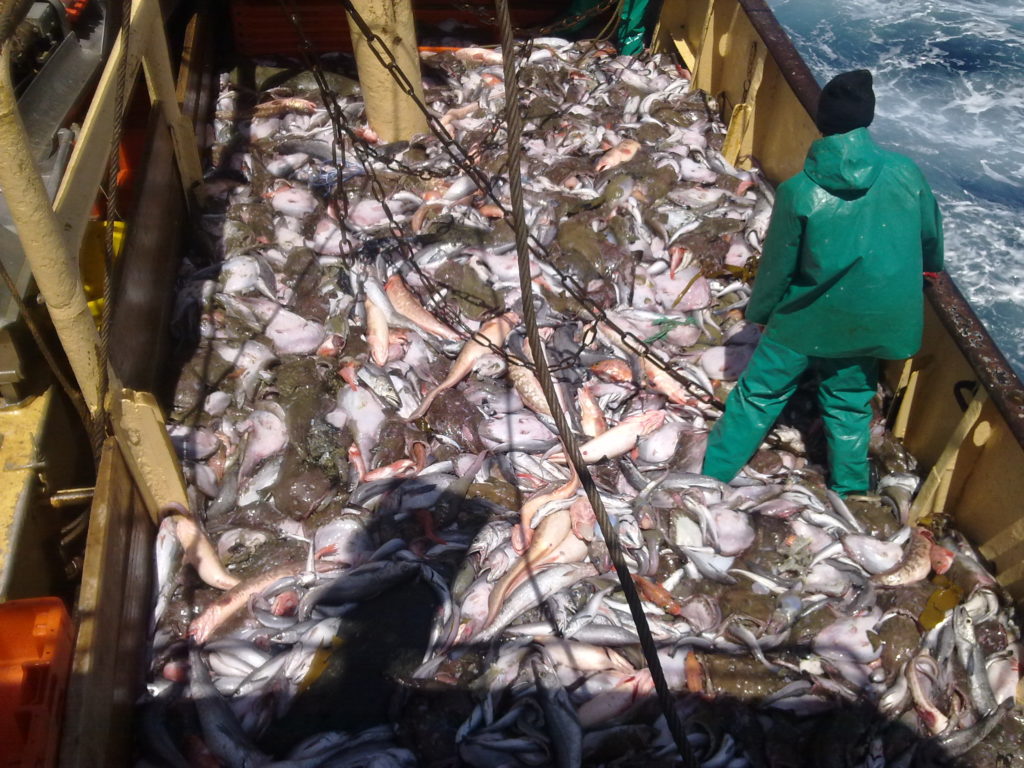
Achieving food security in Africa will require the contributions of small-scale fisheries
Once the foreign threat to national sovereignty is remedied, the domestic threat to food sovereignty must also be addressed—that will mean providing communities with democratic control over the aquatic resources on which they rely. All around the world, communities are taking increased responsibility for the management of their local fisheries under various types of power-sharing agreements with national and local governments. This is called co-management, and its success has demonstrated the importance of community participation in fishery governance. Co-management’s Achilles heel, however, is that it can be co-opted or even ignored by more powerful government structures when the interests of local communities do not align with the interests of government ministers or heads of state. This is where democratic values and food security are mutually reinforcing assets. As long as central governments continue to undermine local communities in the name of blue economic development, fisheries’ contribution to food security will remain severely limited.
African countries should invest in their people by investing in a sustainable, equitable, and democratically governed fishing industry. Sadly, however, exploitative political and economic conditions are undermining that goal. Today, the Mbashe River is no safer for fishermen than it was last month, foreign vessels are sailing home carrying fish caught in African waters, and most central governments are still too interested in consolidating their own power to seriously contemplate empowering local communities. Achieving food security in Africa will require the contributions of small-scale fisheries; maximizing the contributions of small-scale fisheries will require the empowerment of local communities; and empowering local communities will require the democratization of fishery governance. Much is at stake. We cannot afford to wait any longer.
| Dates To Remember |
|
April 2 – World Autism Awareness Day 4 – International Day for Mine Awareness and Assistance in Mine Action 6 – International Day of Sport for Development and Peace 7 – International Day of Reflection on the 1994 Genocide in Rwanda 7 – World Health Day 15 – Good Friday 17 – Easter Sunday 21 – World Creativity and Innovation Day 22 – International Mother Earth Day 23 – English & Spanish Language Day 24 – International Day of Multilateralism and Diplomacy for Peace 25 – World Malaria Day 28 – World Day for Safety and Health at Work 30 – Our Lady, Mother of Africa 30 – International Jazz Day May 1 – St Joseph the Worker, Workers’ Day 3 – World Press Freedom Day 8 – Remembrance and Reconciliation for Victims of Second World War 8 – World Migratory Bird Day 15 – International Day of Families 17 – World Telecommunication and Information Society Day 20 – World Bee Day 21 – World Day for Cultural Diversity for Dialogue and Development 22 – International Day for Biological Diversity 29 – Ascension of the Lord 29 – International Day of UN Peacekeepers 30 – World No-Tobacco Day |
